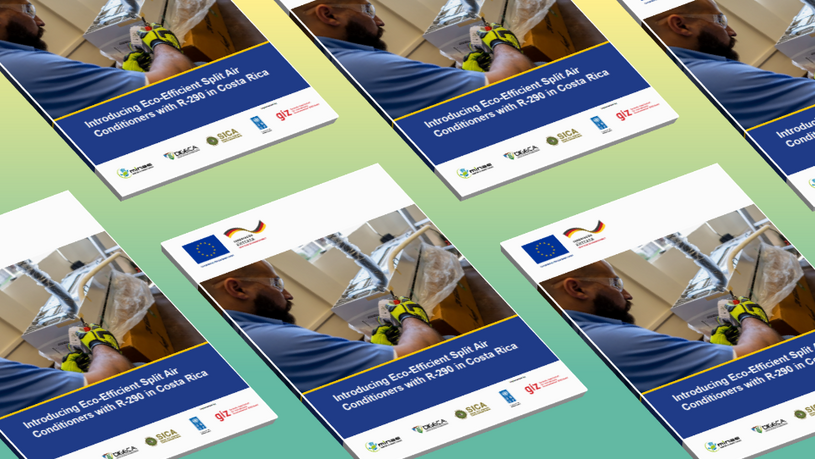The publication provides an overview of the results of a pilot project in Costa Rica.
GIZ and the Ministry of Environment and Energy (MINAE), in collaboration with the Central American Integration System (SICA), developed a demonstration project to introduce ecoefficient air conditioning (AC) equipment that operates with ultra-low global warming potential (GWP) refrigerants, such as R-290, and with high energy efficiency. In this regard, two strategies were implemented to facilitate the expansion of the market for split type AC equipment operating with R-290 refrigerants in Costa Rica. Firstly, a training program was developed. Secondly, a demonstration project with ACs using R-290 was established.
Based on the results of the intensive studies and the analysis of long-term energy monitoring, savings in operating costs were estimated for the eco-efficient equipment, compared to conventional equipment with the same or similar thermal capacity (BTU). Furthermore, a mitigation potential of 2.2 tons of CO2eq was estimated when comparing new technology with conventional equipment.
Read more about the activities and results in the publication.

